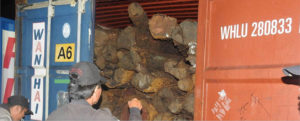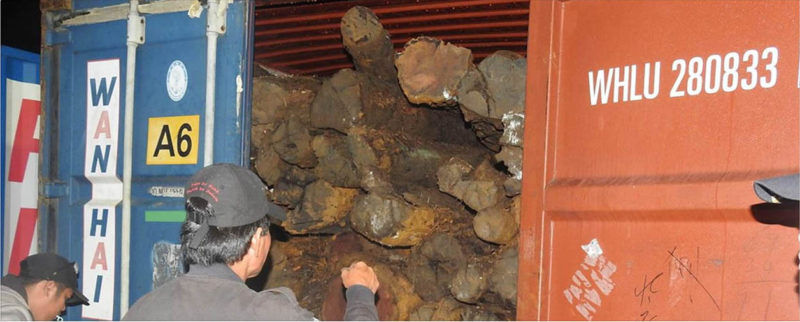
Logs from felled Mangkono trees and misdeclared as flour meal and powder and dried crushed banana have been confiscated by the Bureau of Customs (BOC) at the Port of Davao.
Davao Port district collector Jamail Marohomsalic reported that the logs were discovered in a container van that BOC agents opened in the presence of representatives from the Philippine Drug Enforcement Agency and Philippine Coast Guard on false information that the van contained illegal drugs.
According to Marohomsalic, the shipment was meant to be exported to a consignee in Japan identified as Sanyo Tsushu Co. Ltd., with address in Fukuyama City, Hiroshima.
The shipper was identified as Transmodal International, Inc. with office address in Lanang, Davao City.
The Mangkono tree, a Philippine iron wood, is categorized as an endangered species in the International Union for Conservation of Nature Red List of 2014. Cutting it down is prohibited under Executive Order No. 23, dated February 1, 2011 and issued by former President Benigno Aquino III, and Presidential Decree No. 705, otherwise known as the Forestry Code of the Philippines.
The log of a Mangkono tree is usually used as material for the bearing or stern bushing of a steamship’s propeller shaft. Its other uses include as material for rollers, shears, saw guide blocks, tool handles, novelty items, poles and piles for wharves and bridges, and posts for houses. Locally, it is used to make heavy furniture items like tables and chairs.
Marohomsalic said the log shipment, which had a declared value of P380,000, lacked an export permit from the Department of Environment and Natural Resources and is being held by BOC in Davao City on authority of a warrant of seizure and detention.





